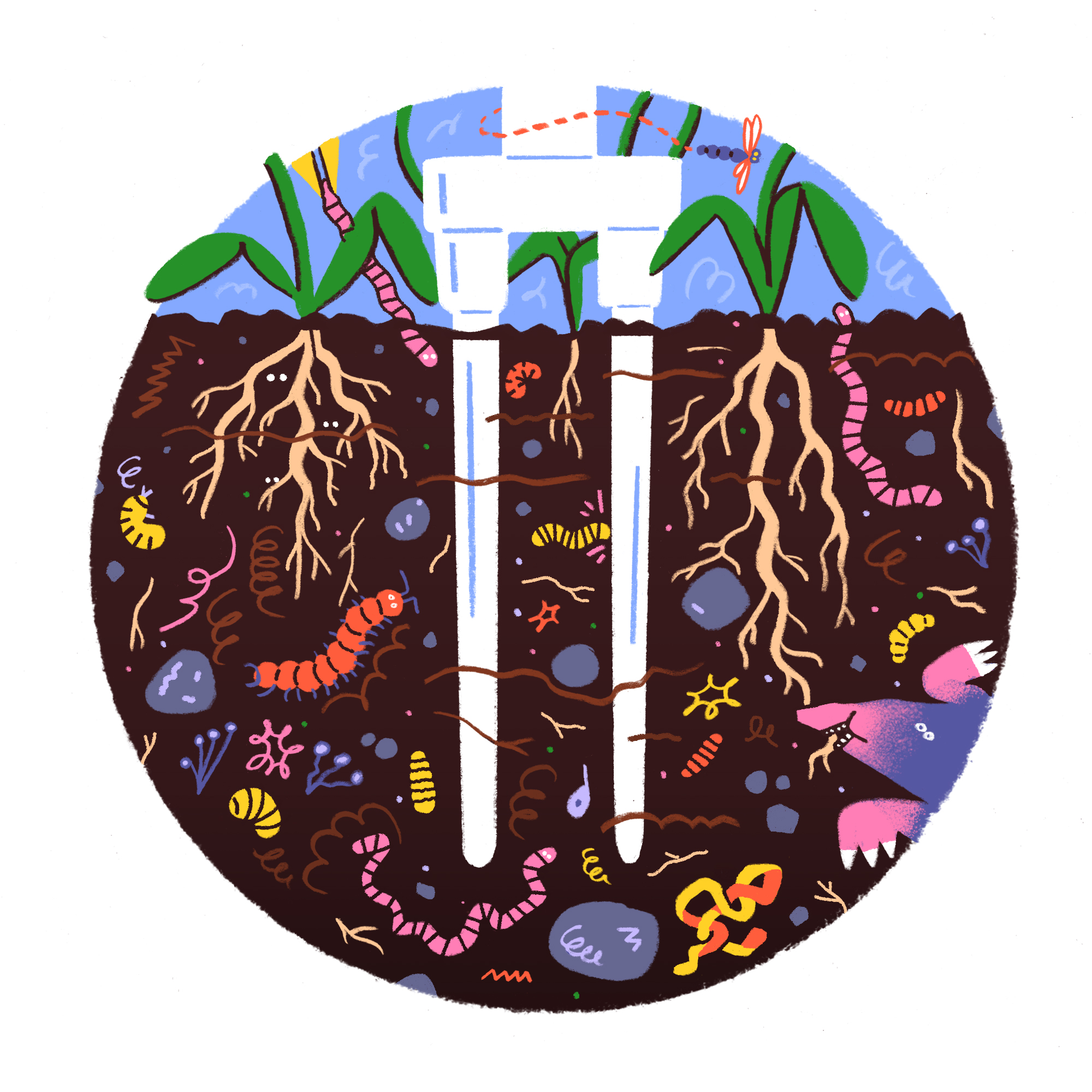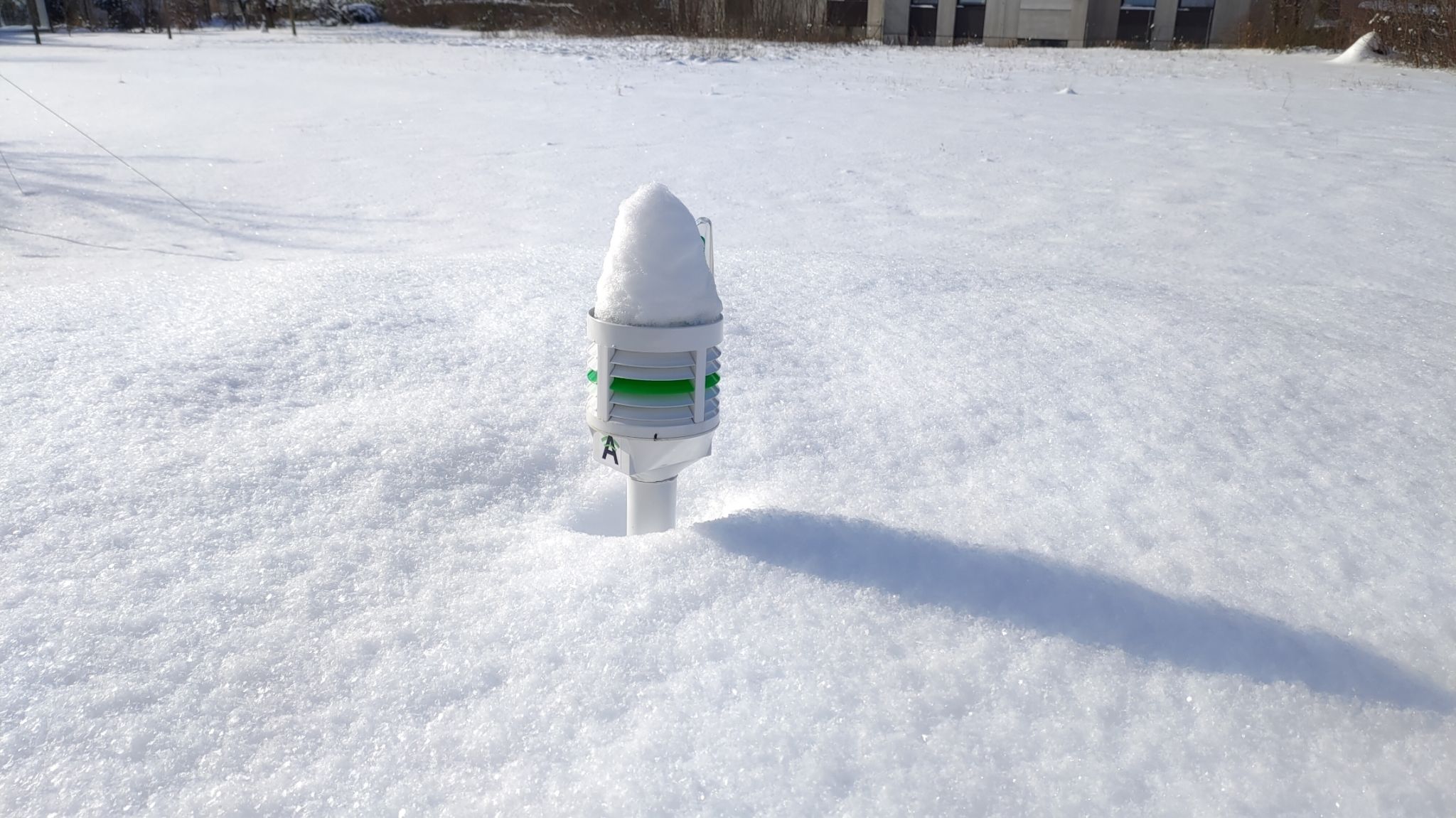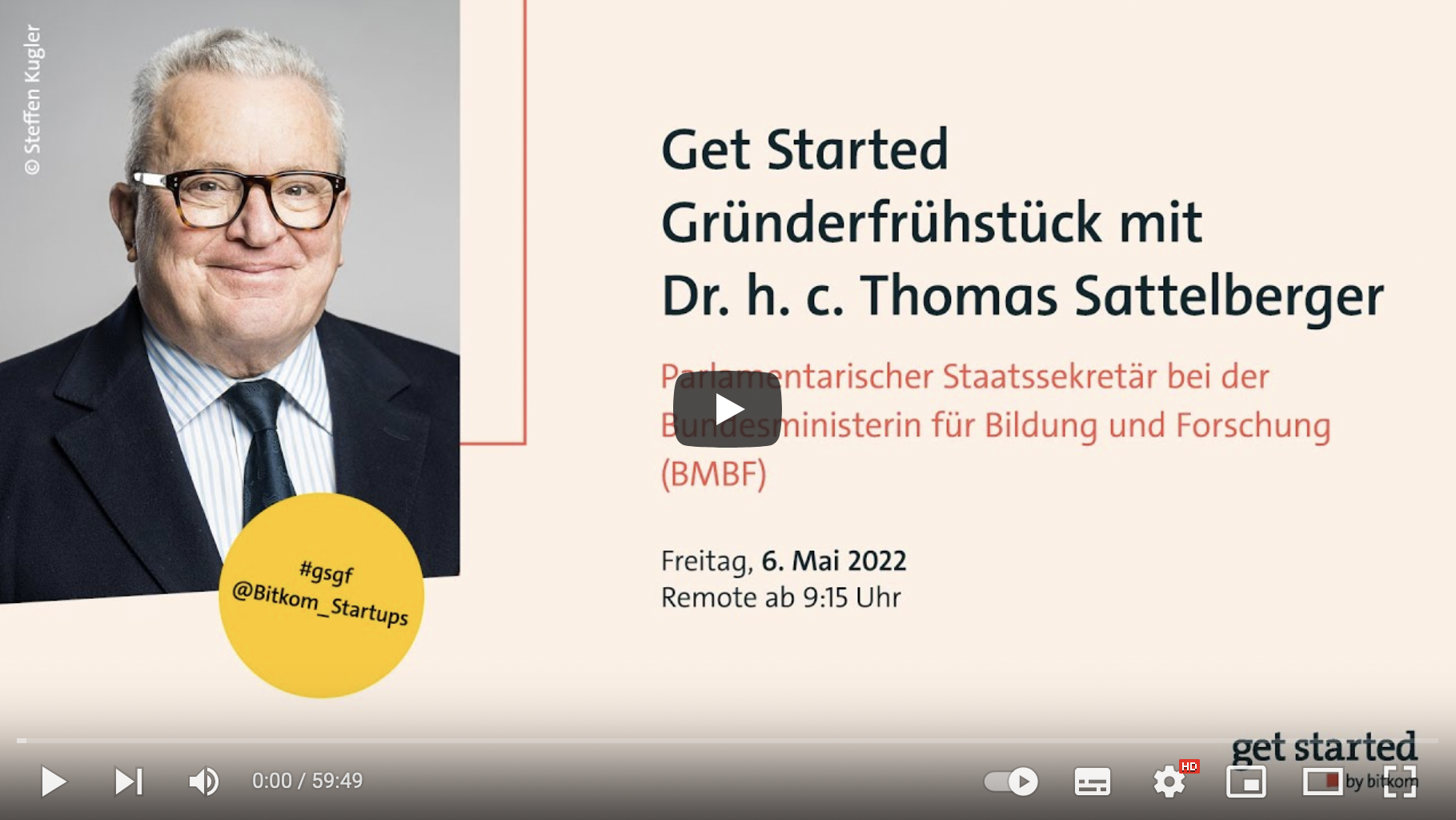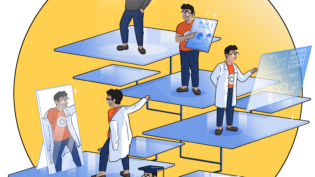
In soil we trust
Written by
Tackling the big challenge of climate change with microclimate data
Modern Agriculture is in need of a transformation. One of the biggest pressures is more extreme and rapidly changing weather conditions because of climate change. Nothing less than our food security is in question. According to Agvolution, the answer lies in the soil. The Göttingen-based startup around Andreas Heckmann has built a system that gathers the data and turns it into reliable maps and models that help save water and prevent damage.
What is the (r)evolution in Agvolution?
In relation to climate change, there is a lack of data in the agricultural sector. I grew up on a small farm in Essen. It was fun to drive a tractor, but what has always fascinated me was how things work together in a complex system. Studying agriculture, I noticed that I couldn’t understand how the ecosystem works without getting access to this data. Neither could the farmers who grow our food. If we don’t know about soil moisture content and the different layers of the soil, we will not be able to adapt to a changing climate. Agvolution closes this data gap and turns it into information the user can understand and utilise.
How do you yield the data?
CLIMAVI, our robust soil moisture sensor, gathers the microclimate data in the field. Our software enriches the data with satellite images, soil data, and other publicly available datasets. This data is fed into FARMALYZER, our environmental intelligence, which enables the online modelling of ecosystems. In other words: all the players and conditions in an ecosystem and their interactions that we can measure can be modelled in real time and presented in a way that is accessible for the user. FARMALYZER also predicts the environment and plant growth, and thus helps farmers make decisions.
How do you manage to keep costs for your customer at bay while developing a highly technical solution?
It is part of our patent, so I cannot talk about it in too much detail. One big advantage we have is that we leverage innovation from other research fields, like smartphone technologies and capacity sensor technologies. This lowers the costs because we are using existing sensors. We could have hired a hundred people, but instead we built the whole system from scratch in many hours of work over the last three years.
What has been the feedback from customers so far?
Overall, it has been great. Of course, we had many issues to fix along the way. If you deploy new software, you need to test it. Fortunately, we did that from the very beginning. One nice feedback we have received from a customer was that we enabled them to develop their technology faster.
What does a typical Agvolution customer look like?
It can be an agricultural business, a city, or even a public institution, that is struggling with a shortage of labour, time, or money. For instance, an Agtech company might have a software running, but is in need for hardware; a hardware company, like a weather station manufacturer, has good hardware but no software. In order to address this shortage, we offer a user-centred technology-as-a-service, which can be adapted to our customers’ needs.

You deployed over 500 sensors in 2021 with many more planned this year. What has been the main factor for your success?
The team was essential. This is the advantage we have at Agvolution. We have a very interdisciplinary team of cofounders, a physicist, electronics specialist, data scientist, informatics expert, and me as an agronomy and sales expert. At this point, we are no longer only the cofounder team, but a team of five full-time, six part-time employees and two very experienced business angels. We didn’t choose the easiest topic to work on, but I feel lucky and proud that we managed to bring software and hardware together.
Hardware can be a challenging topic for a startup …
In our case, the need for a better solution has been immense. What all our customers have in common is that they are affected by a changing climate. Reducing the water consumption is one of the biggest challenges we are facing in agriculture right now.
You have previously worked as a Trainee at BASF. What experiences have you gathered there that prepared you for the life as an entrepreneur?
I learned a lot about trial management and agricultural business at BASF. I also had the chance to travel around Germany and got in touch with many different farmers, consultants, and authorities. This motivated me to start my own business, to dig deeper into the topic of climate and plant growth. Later, when I started the PhD, I had the chance to take part in the Young Entrepreneurs in Science workshop. It was a great opportunity to meet other minds in science, and the first time I learned about some of the essential tools you need for launching a startup, such as the Business Model Canvas.
What is next for Agvolution?
Launching our FARMALYZER IOT App on IOS, Android, and Web browsers! We have tested it for a long time with our early adopter groups, about 150 people in total. Hopefully this will lead to a good scoring on the app stores. We are looking forward to completing the augmented reality function for us to store and show virtual assets. We are also working on a new type of high-precision positioning technology for our IoT sensors and asset tracking within our app. I am fascinated by this technology. It is all in your smartphone •
Andreas was invited to talk about starting up with the parliamentary state secretary Dr. h. c. Thomas Sattelberger at the bitkom Get Started Gründerfrühstück (in German). Click on this link to watch it on YouTube.








